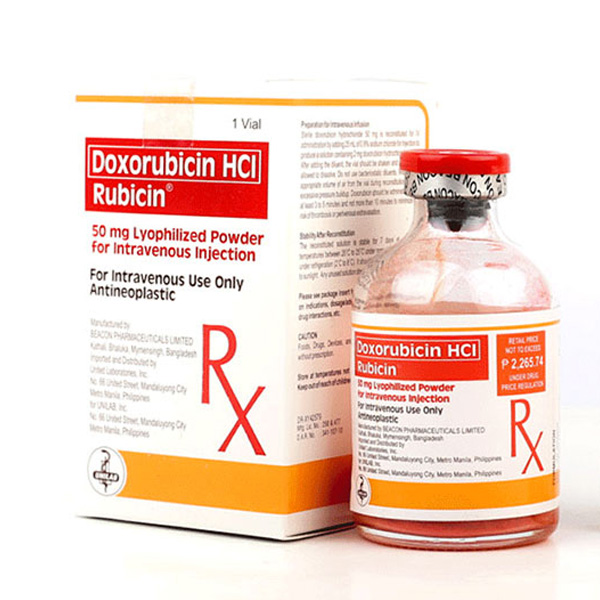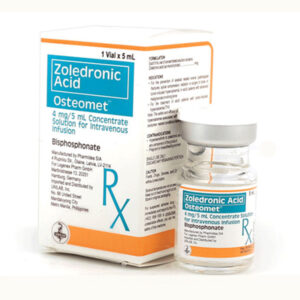Description
Doxorubicin has been used successfully both as a single agent and also in combination with other cancer chemotherapeutic agents in a number of solid tumors and hematologic malignancies such as:
- Acute lymphocytic-lymphoblastic leukemias
- Acute myeloblastic leukemia
- Wilm’s tumor
- Neuroblastoma
- Soft tissue sarcomas
- Osteosarcoma
- Breast carcinoma
- Ovarian carcinoma
- Thyroid carcinoma
- Gastric carcinoma
- Malignant lymphoma
- Hodgkin’s disease
- Non-Hodgkin’s lymphoma
- Transitional cell bladder carcinoma
- Bronchogenic carcinoma in which the small cell histologic type is the most responsive
- Squamous cell carcinoma of the head and neck
Doxorubicin has also shown antitumor activity in the following adult and pediatric malignancies:
- Endometrial carcinoma
- Primary hepatocellular carcinoma
- Non-seminomatous carcinoma of the testis
- Carcinoma of the prostate
- Ewing’s sarcoma
- Rhabdomyosarcoma
- Multiple myeloma
- Chronic leukemias
Doxorubicin has also been used for the following:
- As a component of adjuvant therapy in women with evidence of axillary lymph node involvement following resection of primary breast cancer
- By instillation into the bladder for the topical treatment of superficial bladder tumors





